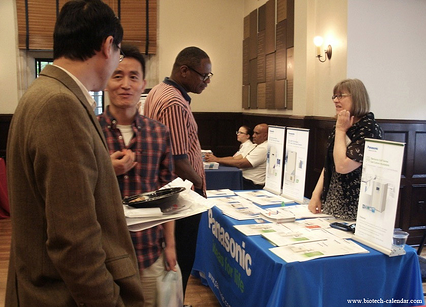A new study at the University of Pennsylvania, published in the journal PLOS ONE, has had researchers develop a variant of the mu opioid receptor that is water-soluble and can be grown in large quantities in bacteria. When the mu opiod receptor binds with opioid molecules, a strong reduction in the sensation of pain occurs. Unfortunately, fatal side effects can occur. According to a University of Pennsylvania news article, researchers at the university sought to address this issue by identifying the hydrophobic amino acids on the exterior of a structured model of the protein.
“The objective then was to redesign those exterior amino acids. Based on the physical and chemical interactions these amino acids have with each other and with water, we were able to identify sequence combinations that are consistent with the model — where atoms don’t overlap in space — and preferentially occupy the exterior surface with ones that are water soluble,” said Jeffery Saven, an associate professor in the Department of Chemistry in the School of Arts and Sciences. “We showed that this water-soluble form of the protein can compete with the native, membrane-based form when binding with antagonists that are fluorescently labeled. You can watch the fluorescence shift as more of these water-soluble variants are floating around in the solution.”
The researchers believe their model to be a significant contribution because it allows other researchers to conduct similar experiments with different conditions. Previously, human opioid receptors were scarce and harvesting was near impossible. The researchers at the University of Pennsylvania were able to redesign the process and express the protein en masse.

Philadelphia BioResearch Product Faire™ Event 2012
“This is a great product that can do a lot of things,” said Renyu Liu, an assistant professor in the Department of Anesthesiology and Critical Care at Penn’s Perelman School of Medicine. “You can use this variant to look at the structure-function relationship for the receptor, or even potentially use it as a screening tool.”
Researchers at the University of Pennsylvania contribute a great deal of knowledge to the life sciences with the help of a large sum of research funding. Lab suppliers hoping to sell lab equipment and market life science products at Philadelphia life science marketing events may be interested to know that the University of Pennsylvania received $457.5 million from the NIH in 2012. For a full list of departments receiving NIH funding at the University of Pennsylvania organized by department name, number of awards received and total funding awarded, please visit the NIH website In 2012, the NSF also gave the University of Pennsylvania a $32 million in research funding.
If you are a lab supplier interested in working to sell lab equipment and marketing life science products at the University of Pennsylvania, Biotechnology Calendar, Inc. invites you to attend our Philadelphia BioResearch Product Faire™ Event held at the University of Pennsylvania campus.
Biotechnology Calendar, Inc. is a full-service science research marketing and events-planning company that has been organizing life science marketing events at top research institutions across the country for 20 years. If you are interested in marketing your life science products and working to sell lab equipment at life science marketing events closer to home, we encourage you to view our 2013 calendar of events. For more funding information on the University of Pennsylvania, or to learn more about our Philadelphia BioResearch Product Faire™ Event, click on the button below.


